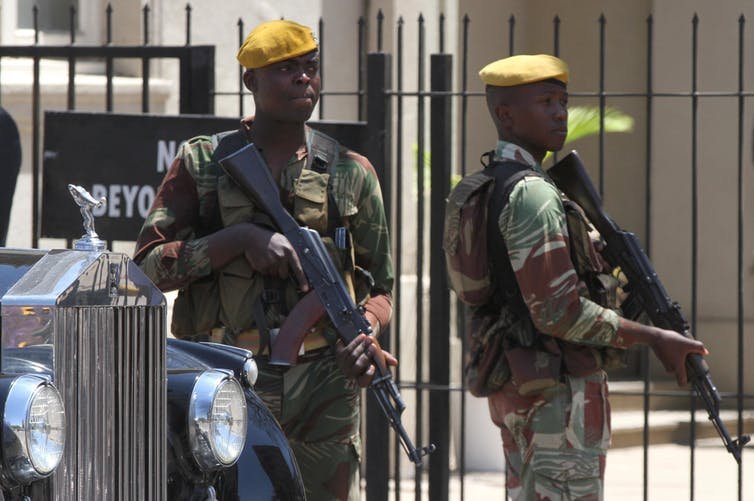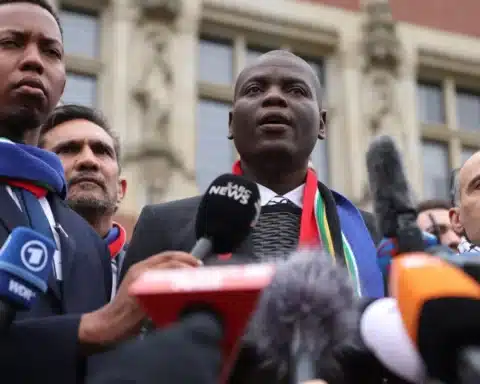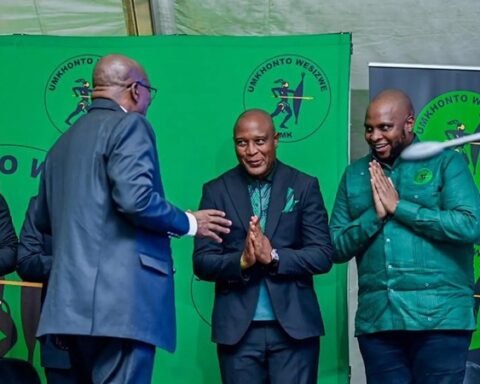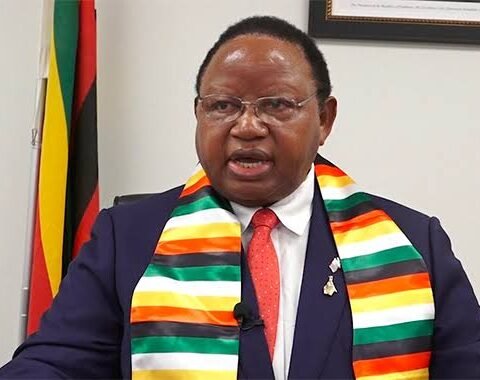In Kenya for example, the military Chiefs of Staff usually come from the president’s ethnic community making them partisan to the head of state and the party he represents. Most recently, there have been allegations of the military’s involvement in a poll rigging scheme with President Uhuru Kenyatta’s government.
Other countries such as Uganda, Egypt and Thailand have experienced more flagrant examples of the military’s involvement in politics.
Recent events in Zimbabwe need to be understood within this context. The Zimbabwe Defence Forces (ZDF) latest stunt must be read as political subterfuge. The military has been enmeshed in Zimbabwe’s politics since the liberation struggle. While it has occasionally flexed its muscle to support Mugabe’s grip on power, this time around it has intervened to shore up the ruling party’s fledgling support after years of the former president’s unpopular rule.
Officers who call the tune
The ZDF have been an invisible actor in the country’s protracted crisis. The intervention that resulted in Mugabe’s resignation was the result of a slow brewing coup that has been occasioned by the military’s involvement in the country’s politics since independence in 1980.
The military has been accused of violence and intimidation, as well as participation in electoral malpractices. ZDF’s human rights violations, economic plunder and entanglement in politics have been widely documented. And its professional misconduct has fomented poor civil-military relations.
The military takeover is therefore a manifestation of undercurrents that have been present for years.
According to the latest research, Zimbabwe is ranked 81 out of 133 countries in terms of military strength, just after the Middle Eastern nation of Kuwait, and one rank above Georgia, which is a former Russian territory. It has a total of 52,000 military personnel, 30,000 active personnel and 22,000 reserves.
ZDF prides itself as having been the liberator in the country’s struggle for independence. During the fight for independence political figures were deployed in the military rank and file to motivate the fighters. At the time, the Zimbabwe African National Union (ZANU) was the political wing of the Zimbabwe African National Liberation Army (ZANLA). This close relationship between the military and political wings persisted after independence.
Mugabe has regularly gifted the military through the allocation of exploited resources. He has also rewarded military men with high positions in the civil service to retain their loyalty, for example the late Mike Karakadzai and Samuel Muvuti. These dynamics have progressively obscured the separation between the army, state and party.
Open support for the ZANU Patriotic Front
The military has been openly partisan in its support for ZANU-PF. The politics of patronage and wealth accumulation has characterised the relationship on both sides. In suppressing the opposition, ZDF has created an uneven political playing field through intimidation and election rigging. The Joint Operations Command which coordinates the military, police and intelligence has been central to ZANU-PF’s security policy.
The military has also taken an openly antagonistic stance towards the opposition. An example of this was Brigadier Douglas Nyikayaramba’s description of Morgan Tsvangirai, the leader of the Movement for Democratic Change (MDC), as a national security threat.
By engineering Mugabe’s ouster the military has reasserted its position as an important player in Zimbabwean politics. It may not hesitate to intervene in the event of another “national crisis”.
Factors in the Mugabe ouster
In their clamour to oust an oppressive ruler and his ambitious wife the Zimbabwean people have placed their hopes in a devious military.
It is hard to tell whether Mugabe’s Achilles’s heel was his wife, Grace, or an equally scheming military, which lured him into a false sense of security and then double-crossed him when he failed to indulge their political whims.
The current political crisis could in fact be the climax of an unwitting convergence of machinations from both sides. By casting Grace as the villain, and taking on the role of saviour, the military is attempting to erase the part it has played in Zimbabwe’s fractious politics.
By joining in the calls for the installation of former Vice President Emmerson Mnangagwa, the people seem to have momentarily discounted his dark past in the country’s politics. Examples of his misdeeds include his role as chief architect in the Gukurahundi massacres which was carried out between 1983 and 1987. Approximately 20,000 Ndebele’s were murdered by the military and security forces.
Another dark cloud that hangs over him includes his special relationship with the military. They were jointly involved in the economic plunder of the Democratic Republic of the Congo.
The former vice president has also been known to persecute his opponents.
While he has the support of ZANU-PF and the top military brass when he becomes president he will face the challenge of de-linking himself from his murky past.
What next for Zimbabwe?
The military takeover strongly suggests that the men in uniform are intent on determining the country’s political trajectory. As such, there are limited leadership choices open to Zimbabweans. With the military’s support, Mnangagwa will take over in the interim and potentially win a future election. But he has a blemished past, which the ZDF cannot sanitise. And his installation could plunge the country into further uncertainty.
For Zimbabwe to take a different route, two things need to happen: the radical security sector reforms that have stalled since 2008 need to be revived. These reforms should be targeted towards professionalising the sector by addressing past misconduct, mainstreaming human rights, and introducing community policing. This should go in tandem with depoliticising the sector, and demilitarising the state and some civilian populations.
In addition, the people of Zimbabwe need to agree on a framework for a viable transitional justice process.
Yvonne Rowa, PhD Candidate in Politics and International Studies, University of Adelaide
This article was originally published on The Conversation. Read the original article.








